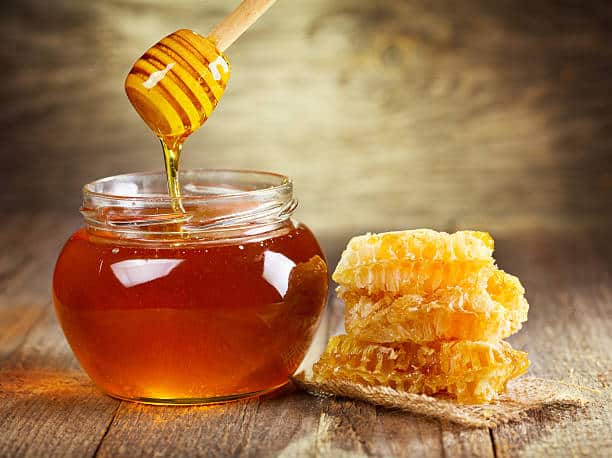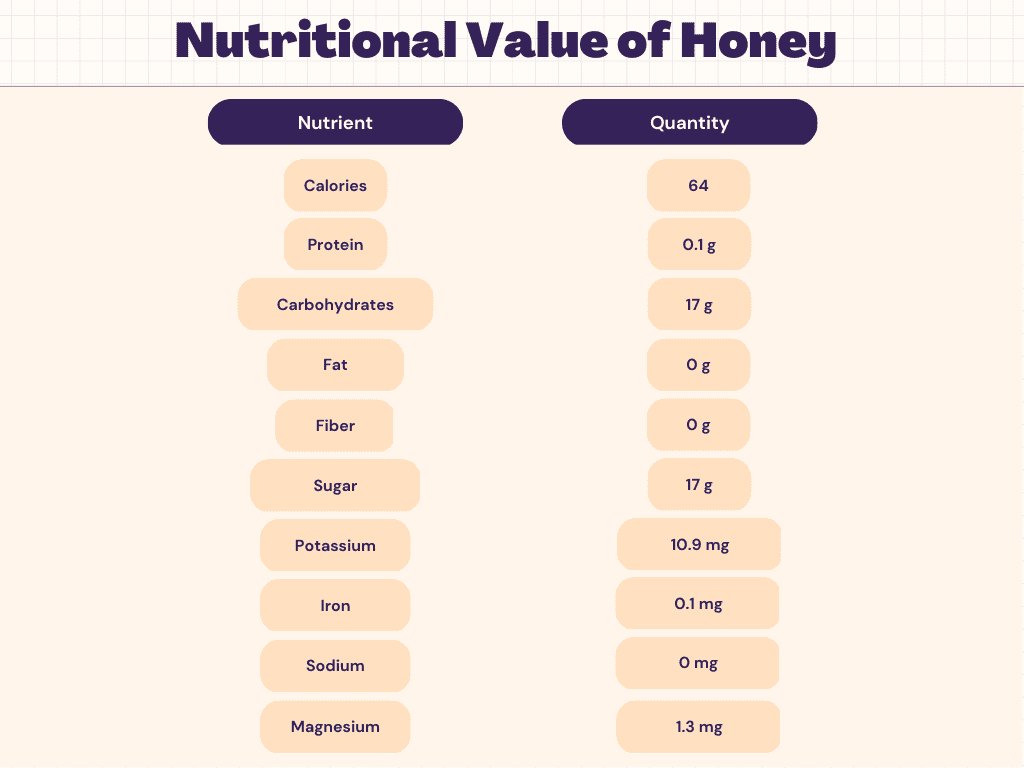A source of natural sugar is honey. When used in moderation, honey can enhance a balanced diet and provide some surprising benefits. However, due to its high sugar and calorie content, honey should not be used in excess, especially if you have diabetes. This is the latest information on scientific studies and nutrition data on honey.
Nutritional Value of Honey
Nutritional Facts of Honey
Carbs
Honey contains calories from sugar and other carbs. Around half of the sugar in honey is fructose and half is glucose.
Fats
Honey contains no fat.
Protein
Honey has a tiny amount of protein, but not nearly enough to meet your daily needs.
Calories
64 calories are contained in one tablespoon of honey, almost all of which are sugary carbohydrates.
Health Benefits Of Honey
- May Ease a Cough – The cough suppressant in Robitussin DM—better than Benadryl (diphenhydramine) or no treatment
- May Encourage Regularity – Flavonoids and phytochemicals may support the body’s digestive functions.
However, the number and scope of research that have so far supported this advantage are few. - Might Promote Reproductive Health – Royal jelly, a form of honey, has a variety of impacts on the health of female reproduction. It has been discovered that royal jelly can lessen menopausal and premenstrual symptoms. Royal jelly contains antioxidants that may lessen oxidative damage linked to ageing of the ovaries.
- Wound Healing and AIDS – Free radical activity is reduced by propolis, and collagen synthesis is encouraged, both of which are helpful for healing wounds.
- May Lower Cancer Risk – Honey can decrease tumor development, reduce inflammation, and promote tumor cell apoptosis (cell death).
Vitamins & Minerals in Honey
Vitamins B, calcium, copper, iron, zinc, and other vitamins and minerals that are mostly derived from the soil and nectar-producing plants can be found in honey. Darker honey typically contains more vitamins and minerals than light honey.
The Bottom Line
Raw honey has a long history of usage in medicine and offers a number of health advantages. Even some hospitals utilize it as a wound therapy. Several of these health advantages are exclusive to raw or unpasteurized honey. Much of the honey sold in supermarkets has been pasteurized. High heat destroys undesirable yeast, enhances color and texture, gets rid of any crystallization, and prolongs shelf life. However many of the advantageous nutrients are also lost throughout the process.
FAQs
How much Honey can I consume in a day?
According to Keating, honey should be used sparingly and treated the same as all other added sugars. Men should limit their intake to nine teaspoons (36 grams) per day, while women and children should limit it to six teaspoons (24 grams) per day, according to the American Heart Association.
Should I eat Honey before or after exercise?
According to studies, honey is a great pre-workout food to have in your fitness toolbox. It is one of the most useful carbs you may consume prior to working out.
What are the benefits of Honey?
- Encourage bowel movement
- Eases cough
- Helps with good reproductive health
- Helps in wound healing
- Lowers the risk of cancer
What is the best time to eat Honey?
Often, experts advise taking honey on an empty stomach first thing in the morning since it gives you an immediate kick and energy boost that will last you the entire day. Moreover, a tablespoon of honey before bed not only promotes restful sleep but also aids in digestion and body and mind relaxation.










